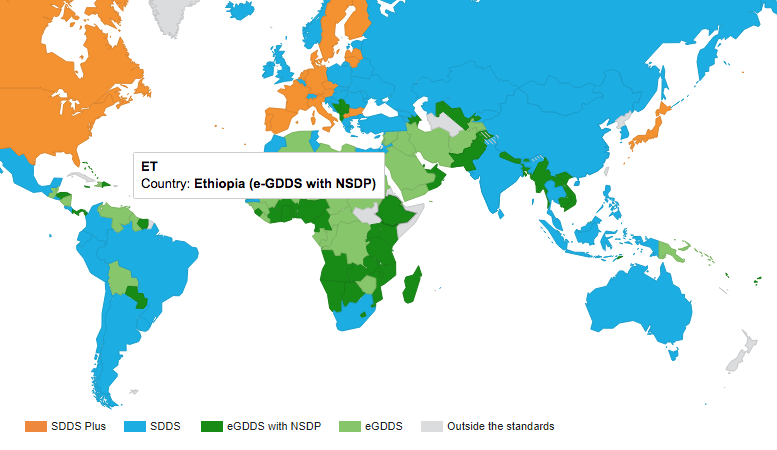
Radar | Jun 22,2024
Sep 11 , 2020
By Dani Rodrik
Today's international trade regime was not designed for a world of data, software and artificial intelligence - utterly inadequate to face the main challenges new technologies pose, writes Dani Rodrik, professor of International Political Economy at Harvard University’s John F. Kennedy School of Government.
The international trade regime we now have, expressed in the rules of the World Trade Organisation (WTO) and other agreements, is not of this world. It was designed for a world of cars, steel and textiles, not one of data, software and artificial intelligence. Already under severe pressure from China’s rise and the backlash against hyper-globalisation, it is utterly inadequate to face the three main challenges these new technologies pose.
Primarily, there is geopolitics and national security. Digital technologies allow foreign powers to hack industrial networks, conduct cyber espionage and manipulate social media. Russia has been accused of interfering in elections in the United States and other Western countries through fake news sites and the manipulation of social media. The US government has cracked down on the Chinese giant Huawei because of fears that the company’s links to the Chinese government make its telecom equipment a security threat.
Then there are concerns about individual privacy. Internet platforms are able to collect huge amounts of data on what people do online and off, and some countries have stricter rules than others to regulate what they can do with it. The European Union, for example, has enacted fines for companies that fail to protect EU residents’ data.
Last but not least, there is economics. New technologies give a competitive edge to large companies that can accumulate enormous global market power. Economies of scale and scope and network effects produce winner-take-all outcomes, and mercantilist policies and other government practices can result in some firms having what looks like an unfair advantage. For example, state surveillance has allowed Chinese firms to accumulate huge amounts of data, which in turn has enabled them to corner the global facial recognition market.
A common response to these challenges is to call for greater international coordination and global rules. Transnational regulatory cooperation and anti-trust policies could produce new standards and enforcement mechanisms. Even where a truly global approach is not possible – because authoritarian and democratic countries have deep disagreements about privacy, for example – it is still possible for democracies to cooperate among themselves and develop joint rules.
The benefits of common rules are clear. In their absence, practices such as data localisation, local cloud requirements, and discrimination in favour of national champions create economic inefficiencies insofar as they segment national markets. They reduce the gains from trade and prevent companies from reaping the benefits of scale. And governments face the constant threat that their regulations will be undermined by companies operating from jurisdictions with laxer rules.
But in a world where countries have different preferences, global rules – even when they are feasible – are inefficient in a broader sense. Any global order must balance the gains from trade - maximised when regulations are harmonised - against the gains from regulatory diversity, which are maximised when each national government is entirely free to do what it wants. If hyper-globalisation has already proved brittle, it is in part because policymakers prioritised the gains from trade over the benefits of regulatory diversity. This mistake should not be repeated with new technologies.
In fact, the principles that should guide our thinking on new technologies are no different from those for traditional domains. Countries may devise their own regulatory standards and define their own national security requirements. They may do what is required to defend these standards and their national security, including through trade and investment restrictions. But they have no right to internationalise their standards and try to impose their regulations on other countries.
Consider how these principles would apply to Huawei. The United States has prevented Huawei from acquiring American companies, restricted its operations in the US, launched legal proceedings against its senior management, pressured foreign governments not to work with it, and, most recently, banned US companies from selling chips to Huawei’s supply chain anywhere in the world.
There is little evidence that Huawei has engaged in spying on behalf of the Chinese government. But that does not mean that it will not do so in the future. Western technical experts who have examined Huawei’s code have been unable to rule out the possibility. The opacity of corporate practices in China could well obscure Huawei’s links to the Chinese government.
Under these circumstances, there is a plausible national security argument for the US – or any other country – to restrict Huawei’s operations within its own borders. Other countries, including China, are not in a position to second-guess this decision.
The export ban on US companies, however, is harder to justify on national security grounds than the ban on Huawei’s US-based operations. If Huawei’s operations in third countries pose a security risk to those countries, their governments are in the best position to assess the risks and decide whether a shutdown is appropriate.
Moreover, the US ban confronts other countries with severe economic repercussions. It creates significant adverse effects for national telecoms companies like BT, Deutsche Telekom and Swisscom in no fewer than 170 countries that rely on Huawei’s kits and hardware. Perhaps worst hit are poor countries in Africa that are overwhelmingly dependent on the company’s cheaper equipment.
In short, the US is free to close its market to Huawei. But US efforts to internationalise its domestic crackdown lack legitimacy.
The Huawei case is a harbinger of a world in which national security, privacy and economics will interact in complicated ways. Global governance and multilateralism will often fail, for both good and bad reasons. The best we can expect is a regulatory patchwork, based on clear ground rules that help empower countries to pursue their core national interests without exporting their problems to others. Either we design this patchwork ourselves, or we will end up, willy-nilly, with a messy, less efficient and more dangerous version.
PUBLISHED ON
Sep 11,2020 [ VOL
21 , NO
1063]


Radar | Jun 22,2024

Fortune News | Nov 13,2021

Viewpoints | Oct 16,2020

Commentaries | Dec 16,2023

Viewpoints | Oct 18,2025

Fortune News | Mar 07,2020

Commentaries | Feb 24,2024

Viewpoints | Nov 29,2020

Commentaries | Jul 08,2023

Fortune News | Aug 03,2019

Photo Gallery | 175192 Views | May 06,2019

Photo Gallery | 165417 Views | Apr 26,2019

Photo Gallery | 155722 Views | Oct 06,2021

My Opinion | 136783 Views | Aug 14,2021

Dec 22 , 2024 . By TIZITA SHEWAFERAW
Charged with transforming colossal state-owned enterprises into modern and competitiv...

Aug 18 , 2024 . By AKSAH ITALO
Although predictable Yonas Zerihun's job in the ride-hailing service is not immune to...

Jul 28 , 2024 . By TIZITA SHEWAFERAW
Unhabitual, perhaps too many, Samuel Gebreyohannes, 38, used to occasionally enjoy a couple of beers at breakfast. However, he recently swit...

Jul 13 , 2024 . By AKSAH ITALO
Investors who rely on tractors, trucks, and field vehicles for commuting, transporting commodities, and f...

Oct 18 , 2025
The political establishment, notably the ruling party and its top brass, has become p...

Oct 11 , 2025
Ladislas Farago, a roving Associated Press (AP) correspondent, arrived in Ethiopia in...

Oct 4 , 2025
Eyob Tekalegn (PhD) had been in the Governor's chair for only weeks when, on Septembe...

Sep 27 , 2025
Four years into an experiment with “shock therapy” in education, the national moo...

Oct 18 , 2025 . By NAHOM AYELE
In a sweeping reform that upends nearly a decade of uniform health insurance contribu...

Oct 18 , 2025 . By BEZAWIT HULUAGER
A bill that could transform the nutritional state sits in a limbo, even as the countr...

Oct 18 , 2025 . By SURAFEL MULUGETA
A long-planned directive to curb carbon emissions from fossil-fuel-powered vehicles h...

Oct 18 , 2025 . By BEZAWIT HULUAGER
Transaction advisors working with companies that hold over a quarter of a billion Bir...